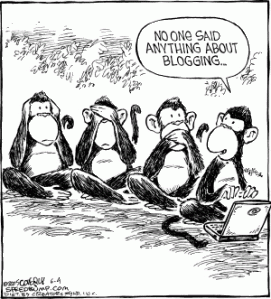Thursday, October 28, 2010
Wednesday, October 27, 2010
[Repost] Spitting on the Bat and Other Baseball Rituals
Baseball may be one of the few remaining bastions where superstitious beliefs and behaviors abound—and are actually encouraged. David Wright and his teammates on the New York Mets shaved their heads to break a slump last year, believing that a change and a show of solidarity would change the way their bats behaved. Wade Boggs ate chicken before every game. John Smoltz did jumping jacks for almost half an hour once to keep a rally going for the Braves. And then there's the equipment: Players should talk to their bat, sleep with it, and never, ever loan it out. Players know that missing any one of these things could mean that the fate of the game—and the wrath of at least 40,000 screaming fans—could be on their shoulders. And that's only the beginning. There are tons of superstitious baseball beliefs like these.
Monday, October 25, 2010
Thursday, October 21, 2010
Is It Time for a Social Media Vacation?
 |
| Credit: Cynicald |
Do you reach for your smart phone as soon as you wake up? Take it into the bathroom with you? Do you absolutely need to know what’s happening on Facebook, Twitter, and on email ALL the time? Are you starting to feel overwhelmed because you’re constantly connected?
Or maybe you’re just tired. Between Facebook, Twitter, and email (and those are just the big ones), it can be hard to keep up—and since they’re all on your phone, you can be connected … anywhere and anytime! We’re constantly plugged in and it can be exhausting.
Monday, October 18, 2010
Recycling for Profit: Rise of the Can Collectors
You can tell it's the night before the recycling is picked up in my neighborhood not by the number of blue recycling bins on the curb (many of which are placed on the curb in the morning before the homeowner leaves for work), but by the rattle of pushcarts that punctuate the stillness. The number of people seeking recyclable cans and bottles to return for a profit seems to have increased, including a range from dedicated collectors to those whose "amateur" efforts involve allowing their own cans and bottles to accumulate for several weeks before bringing them in to the bottle depository or working with neighbors to generate a large enough supply for a sizable return.
Wednesday, October 13, 2010
Seeking Authenticity in Facebook Profiles
We've heard the horror stories about the times when friending a supervisor went astray (seriously, Google Facebook fired—there's even a group!), and we're learning that HR is increasingly reviewing the social media profiles of applicants before they're even invited for an interview. Sites like Facebook allow users to craft a personalized image of themselves—does this personalization suggest a more authentic self? And if so, does that make Facebook a more desirable point of contact for a more "complete" view of a person?
Monday, October 11, 2010
What Are Those Neanderthals Up to Now?
 |
| Scene from the Neanderthal diorama at the American Museum of Natural History. Not shown: Male Neanderthal figure holding tool. |
The Neanderthal story is quickly becoming a favorite serial—who knows what new drama the day will bring! Once regarded as brutish and stupid, it was accepted that they could not compete technologically and socially with early modern human (EMH) populations and were eradicated as the latter spread throughout the globe. But in the last few years, the reputation of our Neaderthal cousins has changed. In fact, we've learned that they were surprisingly like us in many ways: they painted shells for jewelry, provided care for those in need, and had a sophisticated tool industry (see more here). Their diorama at the American Museum of Natural History shows them in a family unit. Their genome has revealed few conspicuous differences, instead demonstrating that Neanderthals may have in fact left a trace of themselves in our own genes.
Wednesday, October 6, 2010
Digital Literacy at What Price?
A cultural and cognitive shift is well underway in terms of how we access and process information via digital media. And a recent study confirms our suspicions: though we are becoming more tech savvy, it may be at the expense of creative and critical thinking. Researchers from the University of Israel (2009), tested digital literacy with a group in 2002. In 2007, they tested this same group again and found statistically significant changes on the test scores. Is this further proof of the widening double digital divide?
Subscribe to:
Posts (Atom)






